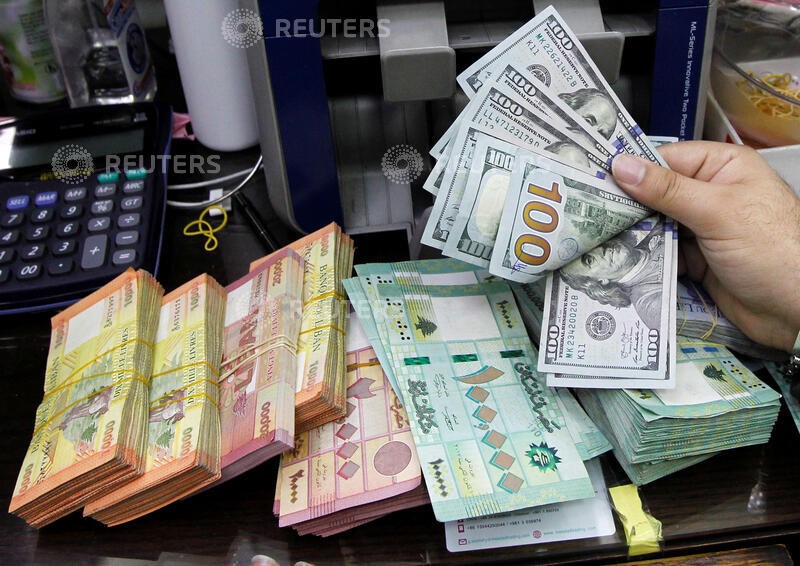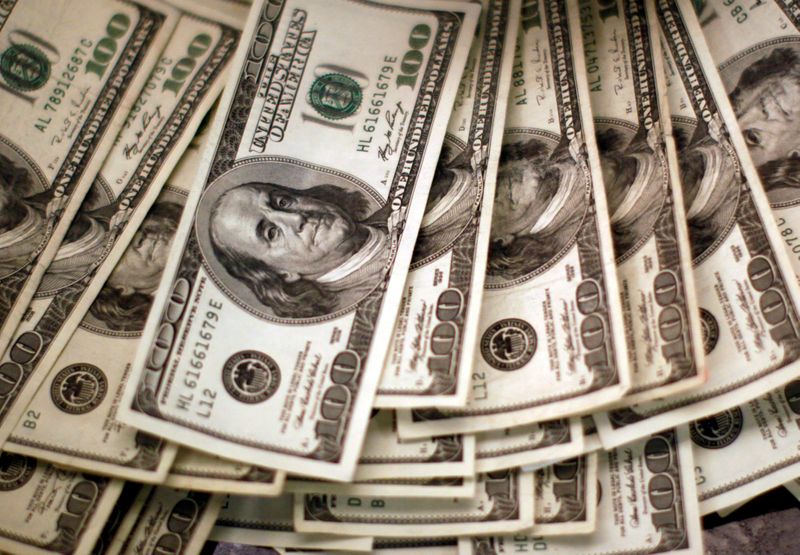By Tom Westbrook
SINGAPORE (Reuters) - A rebound in the dollar faltered on Tuesday as political wrangling over a U.S. relief plan and the gloomy economic outlook kept investors shy of the currency.
After its worst month in a decade in July the greenback started August on a firm note as some investors trimmed their short positions, pushing the currency as high as $1.1695 per euro on Monday, 1.8% above last week's two-year low.
However, that only carried it so far, and it settled back to $1.1766 (EUR=EBS) in Asia on Tuesday, while the yen and other majors also lifted from troughs. The Aussie
Despite an encouraging slowdown in new virus cases and better-than-expected manufacturing data, investors are reserving judgment on whether a U.S. economy with 30 million people out of work can really lead the world's recovery.
"We're still in a situation where the market wants to believe the recovery is on track but is still worried about the COVID situation," said Bank of Singapore FX analyst Moh Siong Sim.
"The fiscal wrangling in the U.S. is the next key test for risk sentiment, and if they manage to get a deal - which seems likely - that could be supportive of risk sentiment."
Top Democrats in Congress and White House negotiators on Monday said they had made headway in talks on the latest coronavirus relief bill, though an expired $600-per-week unemployment benefit remains a sticking point.
It is not clear whether an agreement would be enough to shift the market perception that the U.S. economic recovery lagged those of Europe and Asia.
"The historically extended long positions in the euro is dry tinder, but there is no spark to trigger a more significant reversal just yet," said OCBC Bank FX strategist Terence Wu in Singapore.
"We are still left with hazy signals about the potential turn in broad dollar prospects."
MIXED BAG
A better-than-expected expansion in the Institute for Supply Management's U.S. manufacturing index was a bright spot for the dollar overnight.
But it came with a warning as output remains far below pre-virus levels and the employment index was below forecasts, at a still contractionary 44.3.
"The recovery cannot accelerate with the virus still not under control in large segments of the global economy," said Deutsche Bank (DE:DBKGn)'s chief international strategist Alan Ruskin.
"We expect much more sensitivity to the August data, now that 'the easy part' of the bounce back from lockdowns is done."
The United States had a second straight week of slowing infections last week, but a fourth week in a row of rising deaths, a Reuters analysis found, as new hotspots emerge there and around the globe.
Cases are on the march again in Europe while Australia's second-biggest city of Melbourne announced a curfew and fresh restrictions on movement to suppress an outbreak there.
"This recovery is ... likely to be both uneven and bumpy," the Reserve Bank of Australia said in its policy statement on Tuesday, forecasting Melbourne's lockdown to push unemployment to about 10% later in the year from 7.4% in June.
Elsewhere the yen

Elevated Sino-U.S. tension kept the yuan on the weaker side of 7-per-dollar at 6.9806 in onshore trade
